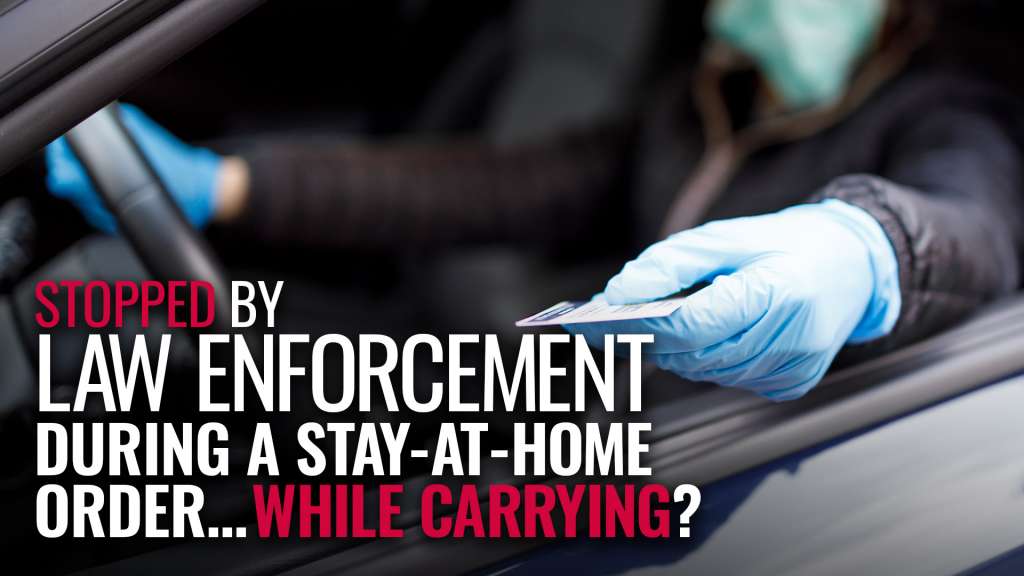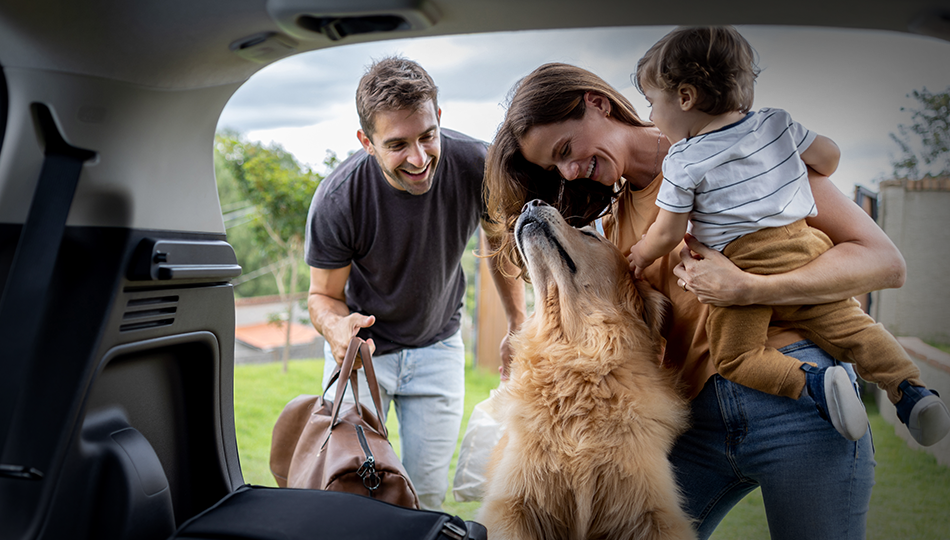
Activate your U.S. LawShield membership now and get the peace of mind you need during these uncertain times.
Each day, the COVID-19 pandemic brings new challenges, and with various curfews and stay-at-home orders in place, it has become vitally important to stay on top of your legal rights.
Your Second Amendment rights haven’t changed, but there are questions to be answered as government officials ask people to limit some of their freedoms.
To be completely clear, while there are still a few states without orders in place, many stay-at-home orders specifically include language specifying that noncompliance will be enforced through criminal or civil penalties. The range of these penalties is broad, but can include fines up to $25,000, or even a year in prison. So far, though, most law enforcement appears to be seeking compliance rather than making arrests.
Arrests often had other aggravating factors like the defendant was simultaneously committing other crimes, or not complying with law enforcement.
Police have been seen giving multiple warnings to disperse and go home before making the arrest. Many of those charged were simply cited and released.
With that in mind, it begs the question: what happens if I’m carrying while violating a stay-at-home order?
If you are stopped by police or come across a roadblock checking essential worker guidelines, the pre-COVID rules pertaining to your right to carry a gun for protection and what you need to tell authorities about your firearm haven’t changed. We have addressed several of the most important legal issues involved with a traffic stop in prior newsletters. Here are the links to the articles and videos that we believe will help keep you prepared for these scenarios:
- Can the police confiscate your gun during a traffic stop?
- What do I need to know about traveling with a firearm?
- What happens if police pull me over at a traffic stop and I’m carrying?
- Do the police need a warrant to search my car?
“This emergency situation is really a call-to-action for any member with questions to call U.S. LawShield, speak to an attorney, and stay informed,” U.S. LawShield Independent Program Attorney Emily Taylor said. “If something does change—let’s say New Jersey passes its proposed firearm restrictions during this emergency—you need to know that information. Just because we’re in an emergency isn’t an excuse for not knowing.”
“Additionally, every state has different gun disclosure laws that have likely not changed because of the pandemic. It’s always best to check.”
That being said, things can change quickly.
“There are lawmakers who aren’t letting this crisis go to waste and we’re seeing a renewed push for gun control,” U.S. LawShield Independent Program Attorney Richard Hayes said. “We are closely monitoring everything.”
While most tend to their families, attorneys like Hayes and Taylor are watching proposed legislation cropping up since the start of the pandemic.
No matter what the future brings, U.S. LawShield remains vigilant in protecting our members.
Stay in touch and stay informed.
If you have any questions regarding being stopped during a stay-at-home order in your state, please call U.S. LawShield and ask to speak to your Independent Program Attorney.





Always good information on these emails and videos. I for one am glad to have US Law Shield watching my back!
Thank you for “scouring proposed legislation” while we all have our heads down. Stay vigilant for us.
Your emails are always read and for that I thank you,
I always read your emails and view your videos. Thank you for keeping your customers informed on the proposed legislation’s in Texas as well as the other states.
Thank You!
Proud U.S. LAWSHIELD member. Always good information and keeping us up todate. Thanks everyone and stay safe.
Thank you for all your guidance.
Our rights are our rights no matter what, the stay at home as I see it is voluntary but that doesnt mean our rights went away.
When they want to charge citizens with violations yet release people from prison something has seriously gone awry. I will not comply with any unconstitutional orders at this time.
I stayed home for several weeks now but have gone back to business as usual. These BS government loans, grants and unemployment are a joke. Jump through a thousand hoops just to find out truly small businesses and self employed get absolutely no help.
Everyone should go back to business as usual and fight any unconstitutional orders.
Thank You for always keeping us informed. I always keep my badge on me. I am a Constable. So I always carry.
Thank you for keeping us up to date and having our backs!
Thank you for keeping us informed, it’s good to know you have my back :)
Good to know the sentinels @ Law Shield are keeping a watch on the gun- grabbers while most of us are occupied with other endeavors …nice work !
Florida allows a lot of reasons for being out and about. And Florida, even with a far higher number of at risk people than some other States has far fewer cases and deaths. One reason has been put out today. Heat and humidity and UV light are bad for the Wuhan Flu. And in the southern part of Florida, we have a lot of all three. But we also have night time semi curfews at night.
Some people don’t know how serious they are about the stay at home. I’m self-employed and the company that I work for gave me a letter from the company that we do work for, I was told to carry it with me so all times in the truck just in case I got pulled over. I was told that without it, it could cost me $1000 fine, jail time and possibly shut me down.
Thank you for all the information.
Thanks for watching our back during this trying time. Everyone who carries should train and be covered by US Lawshield